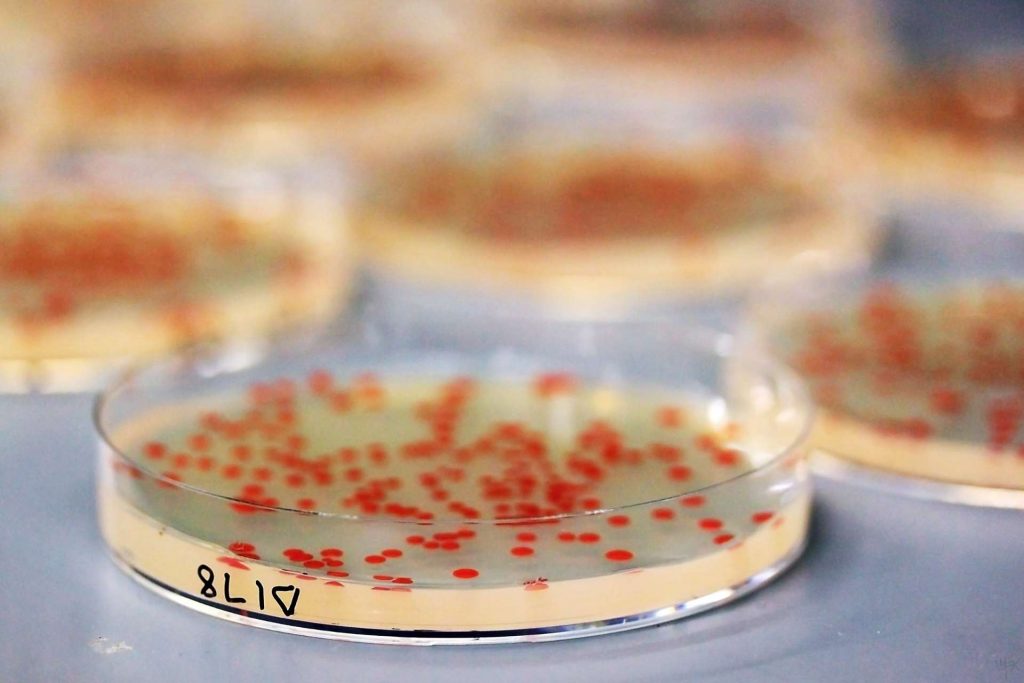
How our students gain a practical education in this exciting area of modern science
Genome editing is a revolutionary area of modern science. For many of our MSc students, gaining experience of these emerging techniques is one of the highlights of their time at Kent.
Under the guidance of Dr Tobias von der Haar, our MSc students use approaches borrowed from a bacterial immune system (CRISPR) to engineer away a metabolic defect in a baker’s yeast strain. The deficiency prevents the production of an essential nutrient and generates a red colony colour as seen in the picture above; this can be thought of as a yeast equivalent of a human metabolic disorder such as Tay-Sachs.
Lisa Bosman, a MSc Biotechnology and Bioengineering student says:
“I come from South Africa – a country where CRISPR gene editing is extremely new and hardly used. The opportunity to learn about CRISPR from someone with first-hand experience, and actually do it ourselves, is incredible. The practicals allow us to absorb the different techniques that you use in CRISPR – they’re exciting and enjoyable, as well as being well laid out.”
Our postgraduates benefit from this cutting-edge training within our research skills module, generating functionally-modified yeast strains while exploring the ethics surrounding the use of these new techniques. The diverse applications of CRISPR have only emerged in the last few years but it’s having a profound influence on research, as well as providing new career opportunities.
“Engaging with this cutting-edge research is a confidence booster,”
says student Essa Jarra from Gambia, who is studying for an MSc in Infectious Diseases. ‘The practicals are in an interactive environment and the lab staff are always there to support us. I’m becoming an up-to-date scientist with the skills to use the CRISPR system to prevent the spread of infectious diseases.’
Photo credit: Dr Wei-Feng Xue




